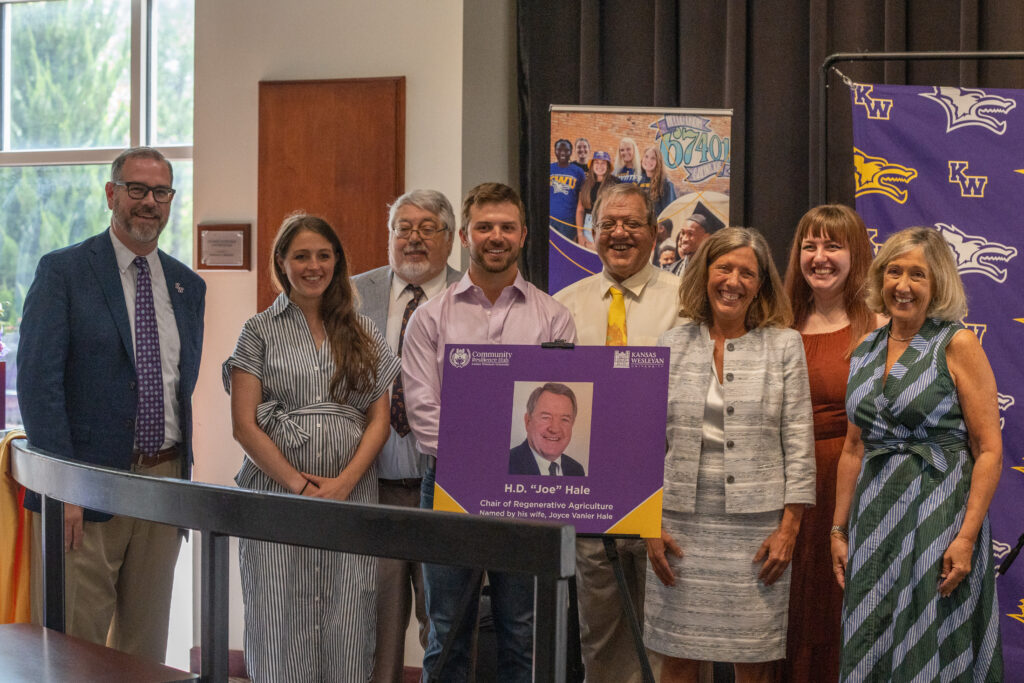One of the region’s leading families has gifted Kansas Wesleyan $1.5 million in support of the university’s newest initiative, the Community Resilience Hub. It comes from the family of Joyce Vanier Hale, presented by Mollie Hale Carter, executive chairman of FirstSun and Sunflower Bank.
The gift was announced Wednesday at a ceremony in KWU’s Hauptli Student Center that included campus leadership, members of the Hale family and Kansas Secretary of Agriculture Mike Beam. The family’s generosity will be recognized in the naming of the first full-time KWU faculty position associated with the Hub as the H.D. “Joe” Hale Chair of Regenerative Agriculture.
“Farming and ranching have always been a big part of my family’s identity,” said Carter. “Mother wanted to find a way to honor my father’s love of farming. We believe that, to carry on that legacy, it is vital to be good stewards of the land and preserve it for future generations. This will require new, innovative thinking, just like the Community Resilience Hub. We believe this work will enrich the lives of Kansans and help ensure that agriculture remains a viable, rewarding industry for future generations.”
Joyce Hale passed away in late June. She owned Cedar Creek Ranch near Manhattan, Kan., which produced championship Hereford cattle, and was a former chair of Sunflower Bank, among other accomplishments.
The gift continues significant support from the family in recent years. In fact, the lobby of Peters Science Hall — renovated in 2021 — bears the name of Hale’s father, J.J. Vanier, in recognition of similar support.
The Hales’ contributions through the years include scholarship funding, supporting the launch of online classes and campuswide technology infrastructure upgrades, and now, funding a truly Kansas-focused approach to education.
“We are truly grateful for the Hale family’s commitment,” said Dr. Matt Thompson, KWU president. “Their philanthropic legacy in the state is well-known. They care about Kansas and its people. The Community Resilience Hub’s focus on our home state, both in education and in real-world results, will help improve the future right here in Kansas. This gift helps make that future possible.”
The CRH kicked off in 2021 and has seen a great deal of movement in recent months, including inclusion in a grant to help create a food corridor between Salina and Wichita. It also recently announced an educational partnership with Rodale Institute, a worldwide leader in regenerative organic farming, and JRI Hospitality/Quail Creek Family Farms.
“Kansans have always been leaders and innovators,” said Secretary Beam. “The Community Resilience Hub is the latest in a long line of great examples of that, and I look forward to seeing it make a difference in the months and years to come.”
For more information on the Community Resilience Hub, please visit www.kwu.edu/crh.



